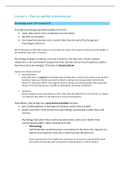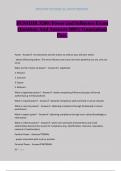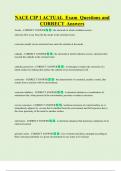Summary
Summary Fundamentals of Psychology: (Grade 10/10) LECTURE & CHAPTER 5
- Course
- Institution
My summary got me a 10 on the Fundamentals of Psychology exam. You can get it and ace your exam... for the price of a cappuccino! By studying with my notes, you won't need to consult the lecture nor the book "Fundamentals of Psychology". I include explanations filled with plenty of images alongs...
[Show more]





